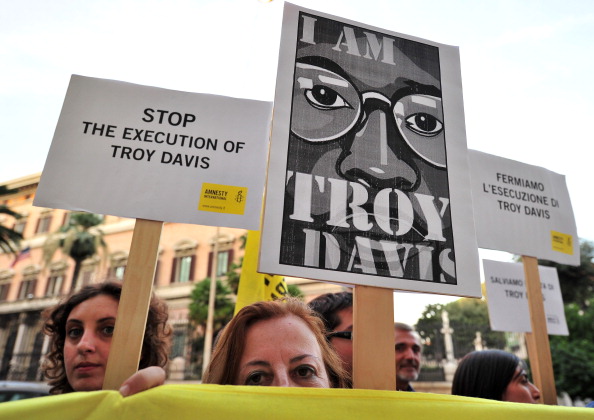
Alberto Pizzoli / AFP/Getty Images
Amnesty International activists hold banners in support of Troy Davis.
Troy Davis is set to be executed at 7 p.m., barring a last minute stay — which seems unlikely at this point. This, despite witnesses recanting testimony, lack of physical evidence and worldwide protests.
Davis, a black man, was convicted in the 1989 killing of off-duty police officer Mark MacPhail, who was white. In this case, Davis’ jury was majority black. But since the sentencing, three of the original jurors have publicly stated they regret their votes.
Much of the protests surrounding Davis’ execution aren’t based largely on claims of racial bias, but rather that overwhelming reasonable doubt should be cause enough to stay the execution. But what role does race play in such death penalty sentences? David C. Baldus, a prominent researcher whose work was at the center of a Supreme Court ruling, studied 2,000 death penalty cases in Georgia in the late 1980s. He found that black defendants were four times more likely to be sentenced to death for killing a white person than for killing a black person. Likewise, prosecutors sought the death penalty 70 percent of the time in cases with black defendants and white victims, and only 20 percent of the time when the defendant was white and the victim was black.
Of course, accusations of killing a police officer bring an added layer of complexity in death penalty sentencing. Still, perhaps the question isn’t whether Davis would be on death row if he were white. Rather, would he be on death row if MacPhail had been black?


